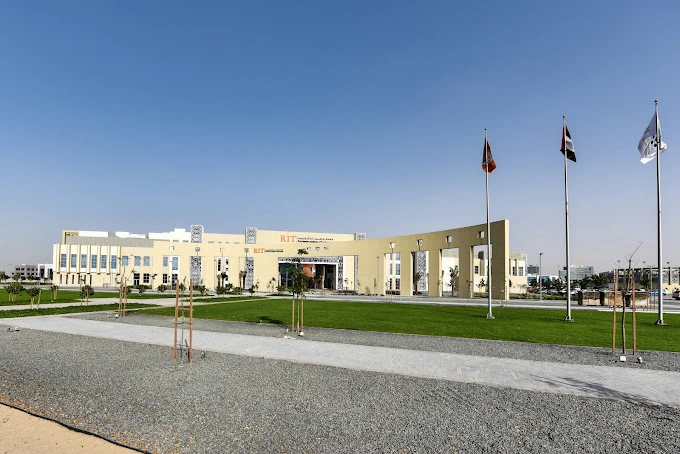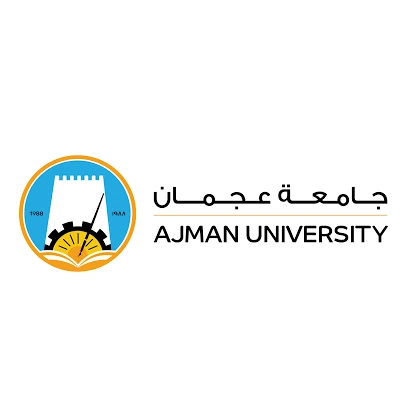
Home > Study in UAE > Rochester Institute of Technology - Dubai Campus > Bachelor of Science in Finance
Bachelor of Science in Finance
 Rochester Institute of Technology - Dubai Campus, UAE
Rochester Institute of Technology - Dubai Campus, UAE

AED 68000
Annual Tuition Fee

Free
Application Fee

48 months
Duration

6.5
IELTS

79
TOEFL

60%
Min GPA
Program Overview
The Bachelor of Science in Finance degree prepares students for management positions in financial, commercial, industrial, and governmental organizations. Students are taught the principles of financial decision making and build an understanding of the economic, legal, and financial environment in which they will operate. Career options exist in government, industry, service, and not-for-profit organizations.
Students become familiar with financial systems, which include the public, private and government spaces. They also study financial instruments related to countless assets and liabilities. Specifically, Finance majors study cash flow, asset and risk management, capital markets, portfolio theory, international finance and forecasting and budgeting. Students become experts at decision making – one of the main differences between Finance and Accounting.
As a Finance major, students go beyond making a budget; they learn how to analyze a budget to determine opportunities to save or identify the best investment option. Students explore different career options in the Finance program based on their interest in decision-making – they can choose to pursue studies that support a managerial position as a Financial Analyst or they may be interested in a path that leads them to a career in Financial Consulting.
Finance students develop their ability to manage corporate finances and enhance their leadership potential. At RIT Dubai students learn how to solve problems. In addition, and more importantly, they learn how to prevent problems through in-depth analysis, contingency planning and effective decision making.
Program Goals
These are the program goals and associated program outcomes for the Business Core which are common to all business and management students:
- Analytical and Critical Skills: Analyze and evaluate major business issues to make and communicate effective decisions. Upon graduation, students will be able to:
- Analyze a business problem using one or more theory-based frameworks.
- Interpret data using quantitative methods.
- Communicate a solution to a business problem and the reasoning behind it.
- For a substantive ethical business issue, propose a sustainable course of action that considers the interest of primary stakeholders.
- Applied Focus: Learn course concepts and theories through application and practice. Students will be able to:
- Apply course concepts effectively in a real organizational setting.
- Successfully complete hands-on business-related projects.
- Work effectively with others and in teams.
- Demonstrate how global cultures and institutions impact businesses.
- Creative Problem Solving: Generate a creative solution to a business problem or opportunity through the application of design thinking. Students will be able to:
- Demonstrate a process for generating a creative solution.
- Demonstrate the use of design thinking to arrive at a creative solution.
- Evaluate alternative solutions.
- Technology: Apply business technology and explain its implications. Students will be able to:
- Explain the impact of technology on business operations.
- Apply business technology to solve a problem.
- Develop a strategy that includes technological innovation.
Program-Specific Goals
The following goals are unique to Finance:
- Cash Flows, Risk and Value - Possess knowledge concerning cash flow, risk and value in finance in various contexts and be able to apply financial models concerning them. Students will be able to:
- Compute risk measures for financial securities (e.g., bonds and stocks).
- Conduct analysis on risk-related issues (e.g., compute risk-adjusted performance measures.
- Evaluate financial securities using cash flow-based models
- Use of Financial Technology in Analyzing Data: Students demonstrate the ability to use Excel or other contemporary software applications to analyze given data sets. Students will be able to:
- Apply technology in analyzing financial statements and in developing projections and forecasts.
- Use technology to communicate the results of the analysis so they may be used in decision-making.
Program Learning Outcomes
- Compute risk measures for financial securities (e.g., bonds and stocks).
- Conduct analysis on risk-related issues (e.g., compute risk-adjusted performance measures.
- Evaluate financial securities using cash flow-based models.
- Apply technology in analyzing financial statements and in developing projections and forecasts.
- Use technology to communicate results of analysis so they may be used in decision-making.
Additional Information
Program Level 4-Year Bachelor's Degree
College/University Processing Time 7 Days
Program Format Full-Time
General Admission Requirement
Academic Requirement
Minimum Level of Education Required: To be accepted for this program, students must have Standard XII Higher Secondary Certificate or equivalent, including the following course(s):
- Must cover math at secondary high school.
Note: EMSAT Math 600, or Minimum 60% in HS Math, or Minimum 30% in Math placement test
- Students who fail to meet Math competency requirement will be asked to do foundation courses within the first semester.
- Business students must appear for Math placement test prior to course registration.
Similar Programs


Curtin University - Dubai Campus
Intake Sep 2025, Feb 2026, Sep 2026
Feb 2025

Application Fee

Duration
Test Score
6
IELTS
0
TOEFL
60
Min GPA


Rochester Institute of Technology - Dubai Campus
Intake Sep 2025
Jan 2025

Application Fee

Duration
Test Score
6.5
IELTS
79
TOEFL
60
Min GPA


Rochester Institute of Technology - Dubai Campus
Intake Sep 2025
Jan 2025

Application Fee

Duration
Test Score
6.5
IELTS
79
TOEFL
60
Min GPA


Rochester Institute of Technology - Dubai Campus
Intake Sep 2025
Jan 2025

Application Fee

Duration
Test Score
6.5
IELTS
79
TOEFL
60
Min GPA


Rochester Institute of Technology - Dubai Campus
Intake Sep 2025
Jan 2025

Application Fee

Duration
Test Score
6.5
IELTS
79
TOEFL
60
Min GPA


Rochester Institute of Technology - Dubai Campus
Intake Sep 2025
Jan 2025

Application Fee

Duration
Test Score
6.5
IELTS
79
TOEFL
60
Min GPA


Rochester Institute of Technology - Dubai Campus
Intake Sep 2025
Jan 2025

Application Fee

Duration
Test Score
6.5
IELTS
79
TOEFL
60
Min GPA


Symbiosis International University - Dubai Campus
Intake Sep 2025
Feb 2025

Application Fee

Duration
Test Score
5
IELTS
61
TOEFL
50
Min GPA


Symbiosis International University - Dubai Campus
Intake Sep 2025
Feb 2025

Application Fee

Duration
Test Score
5
IELTS
61
TOEFL
50
Min GPA


Symbiosis International University - Dubai Campus
Intake Sep 2025
Feb 2025

Application Fee

Duration
Test Score
5
IELTS
61
TOEFL
50
Min GPA


Symbiosis International University - Dubai Campus
Intake Sep 2025
Feb 2025

Application Fee

Duration
Test Score
5
IELTS
61
TOEFL
50
Min GPA


Symbiosis International University - Dubai Campus
Intake Sep 2025
Feb 2025

Application Fee

Duration
Test Score
5
IELTS
61
TOEFL
50
Min GPA


Symbiosis International University - Dubai Campus
Intake Sep 2025
Feb 2025

Application Fee

Duration
Test Score
5
IELTS
61
TOEFL
50
Min GPA


Symbiosis International University - Dubai Campus
Intake Sep 2025
Feb 2025

Application Fee

Duration
Test Score
5
IELTS
61
TOEFL
50
Min GPA


SP Jain School of Global Management - Dubai Campus
Intake Sep 2025
Jan 2025

Application Fee

Duration
Test Score
6
IELTS
60
TOEFL
60
Min GPA


Ajman University
Intake Sep 2025
Jan 2025

Application Fee

Duration
Test Score
5
IELTS
61
TOEFL
60
Min GPA


Ajman University
Intake Sep 2025
Jan 2025

Application Fee

Duration
Test Score
5
IELTS
61
TOEFL
60
Min GPA


Ajman University
Intake Sep 2025
Jan 2025

Application Fee

Duration
Test Score
5
IELTS
61
TOEFL
60
Min GPA


Ajman University
Intake Sep 2025

Application Fee

Duration
Test Score
5
IELTS
61
TOEFL
75
Min GPA


Ajman University
Intake Sep 2025
Jan 2025

Application Fee

Duration
Test Score
5
IELTS
61
TOEFL
75
Min GPA
Tuition Fee
The values given below are estimated figures, excluding extra charges like material fee, student activity fees, athletic fees, health care, etc., for courses. To know more, please visit the Programs page.
Average Tuition Fee Per Year
68000
Tuition Fee
(AED)
Free
Application Fee
(AED)
25000 Per year
Average Cost of Living
(AED)
The living costs include the total expenses per month, covering accommodation, public transportation, utilities (electricity, internet), books and groceries.
Check program website for more information about funding options.
Not sure what you are looking for?
Don’t worry, we are here to help.
Popular Universities to Study Abroad
World class education waiting for you.
.png)

Dubai, UAE • 59 Programmes
Tuition Fee : AED 68500 - 82500 / year

Dubai, UAE • 10 Programmes
Tuition Fee : AED 42000 - 42000 / year
.webp)
Dubai, UAE • 81 Programmes
Tuition Fee : AED 45500 - 58200 / year

Top Places To Study In Canada
Province wise Popular university and colleges for Studying abroad.
Popular English Language Proficiency Exams
Blogs and Articles
Curated content to keep you updated on the latest education trends, news and more.
Intakes in Dubai for Indian Students
Updated on • May 27,2025 03:34 PM IST • Study in Dubai









